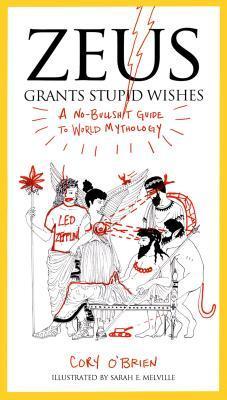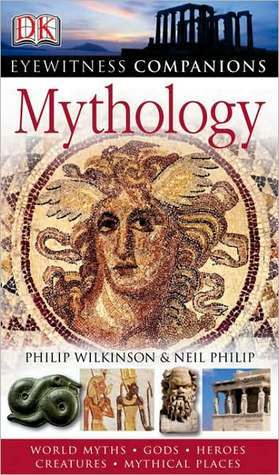
Zeus Grants Stupid Wishes: A No-Bullshit Guide to World Mythology
Book Description
Forget everything you thought you knew about gods and heroes—this is mythology with a twist! Dive into a riotous retelling of ancient tales where deities bicker, mortals outsmart the divine, and every wish comes with a side of absurdity. From Zeus's ridiculous antics to the wild exploits of trickster figures, laugh, gasp, and cringe through an epic saga that smashes the pedestal of the past. With illustrations that leap off the page and insights that resonate today, this is not just a history lesson; it’s a chaotic celebration of human flaws and triumphs. Are you ready to see the gods as they truly are?
Quick Book Summary
"Zeus Grants Stupid Wishes" by Cory O'Brien delivers a rollicking, irreverent journey through global myths, casting legendary gods and heroes in a sharply comic light. O'Brien strips away the solemnity often associated with mythology and instead exposes the absurdity, contradictions, and sheer humanness of ancient tales. Covering stories from Greek, Norse, Egyptian, Japanese, Sumerian, and Native American traditions, he snarkily retells famous narratives, highlighting the selfishness and ineptitude of the gods. With witty commentary, playful illustrations, and plenty of sarcasm, O'Brien reminds us just how weird ancient storytelling can be—and suggests the enduring hilarity in humanity’s attempt to explain the universe. The book both entertains and enlightens, challenging our reverence for myth while revealing its universal quirks.
Summary of Key Ideas
Table of Contents
The Fallibility and Absurdity of Gods
"Zeus Grants Stupid Wishes" opens by challenging the reader’s expectations of mythology, offering an unfiltered, comical perspective on ancient narratives. Cory O'Brien introduces the world's pantheons not as remote, dignified figures, but as over-the-top, fallible beings whose choices often arise from distinctly human, and sometimes downright ridiculous, motives. By exposing how gods like Zeus, Odin, Ra, and others act out of pettiness and self-interest, O'Brien shatters the idealized images often built around these figures, making them accessible—and laughable—to modern audiences.
Universal Themes Through Irreverence
Global in scope, O'Brien’s retellings stretch far beyond Greek and Norse myth. The stories dip into Egyptian, Japanese, Sumerian, Hindu, and Native American traditions, each getting the same tongue-in-cheek treatment. He uses humor and blunt narration to show that cultures everywhere wrestle with inexplicable events and universal questions of love, death, fate, and stupidity, suggesting that the urge to mythologize is itself inherently human and frequently absurd. Each culture’s gods blunder to maintain relevance or control, illustrating the universality of flawed divine figures.
Deconstructing Heroism and Fate
A central focus of the book is the deconstruction of heroism and fate. O'Brien gleefully dismantles the nobility of famous heroes—Heracles, Gilgamesh, and even the Norse gods face their share of comedic mishaps and questionable ethics. Rather than lessons in nobility, these myths become examples of epic bad decisions, making the morality of myth both questionable and relatable. Readers come away thinking less of flawless champions and more about the chaos and ambiguity at the heart of ancient storytelling.
Satire as a Lens on Tradition
The irreverent humor isn’t just for laughs—it serves to satirize both the content and the reverence with which we study mythology. O'Brien’s style lampoons academic solemnity and invites readers to question why we put certain tales and figures on pedestals. His approach underlines that the contradictions and flaws in these stories aren’t failures, but rather reflections of the people who created them. By mocking the narratives, he highlights their enduring appeal and their function as messy, communal attempts to make sense of life’s wildness.
Modern Reflections on Ancient Stories
All the while, the book weaves sly, modern commentary into its ancient retellings, helping readers see the relevance of age-old myths to today’s world. By laughing at ancient deities and their all-too-human errors, O'Brien encourages readers to recognize similar patterns in today’s storytelling—and in ourselves. In the end, the book is not just a parade of absurd deities, but a celebration of myth as a window into humanity’s extravagant imagination and timeless follies.
Download This Summary
Get a free PDF of this summary instantly — no email required.





